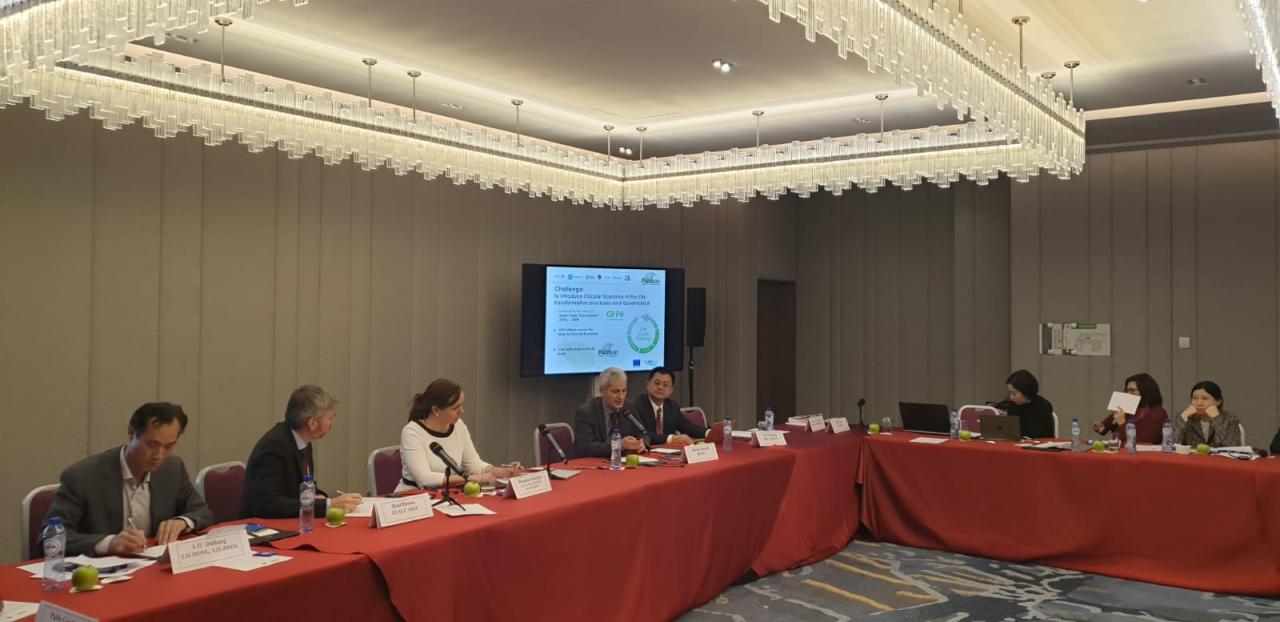
The 14th High Level Forum (HLF) on Regional and Urban Policy Cooperation, organized by the IUC Asia project (https://www.iuc-asia.eu/2019/04/eu-china-cities-cooperation-2019-launched/) as a side event of the EU-China summit, took place in Brussels on 9th April 2019.
Representatives from the EU Commission, the EU Parliament, European and Chinese cities participated in the Forum. The topic of one of the thematic discussion clusters was Circular Economy and Energy Transition. It is in within this framework that RU:RBAN was presented, arousing great interest among the Chinese Officials: urban gardens in China are spontaneous and self-organised. This is the reason why Chinese are very intrigued by the attention currently paid by the EU cities to the phenomenon of urban agriculture. In fact, the Chinese Republic wishes to regulate this increasing phenomenon in the peri-urban areas of its metropolitan cities. The aim is to use urban gardens as a tool to reach all citizens and obtain forms of local organization, following the model of the “city regulations” under construction in the EU through the RU:RBAN action. This was one of the main subjects discussed during the meeting between the City of Rome and the City of Yantai within the City Pairings initiatives promoted by the IUC in occasion of the Forum.
Rurban was presented as one of the leading projects in the field of circular economy experiences in the city of Rome, where the City Administration is directly responsible for the governance and promotion of beneficial and replicable practices. The circular economy of the food can be fully implemented when the user / citizen brings organic waste back in the production cycle (via composters).
The circular economy of the land takes place when abandoned, unused or degraded areas are reintroduced into the social life of the local community.
Following are some of the outcomes of the discussion:
- the awareness of the importance, in environmental terms, of urban farming practices that in some Chinese contexts are taken for granted or, worse, considered residual. A large phenomenon of urbanization is underway and numerous citizens (often the elderly) and families lose their agricultural habits once they have moved to the city. Hence the socio-therapeutic significance of the urban agriculture.
- interest in economic assessments regarding the convenience (business plan) of converting urban or peri-urban private and underutilized to urban gardens, which can instead be rented to farmers' cooperatives.
- the possibility of expanding the scope of urban agriculture and urban gardening in the field of circular economy, through the recycling of organic mowing materials (an example was given of the bamboo canes that clutter the ditches and should be cut periodically).
The possibility of inviting representatives of Chinese cities to one of the planned RU:RBAN Transnational meetings was taken into consideration and will be furtherly discussed.
Therefore, RU:RBAN could play an important role in creating synergies between EU and Chinese cities aimed at disseminating the practice and awareness of urban agriculture.

